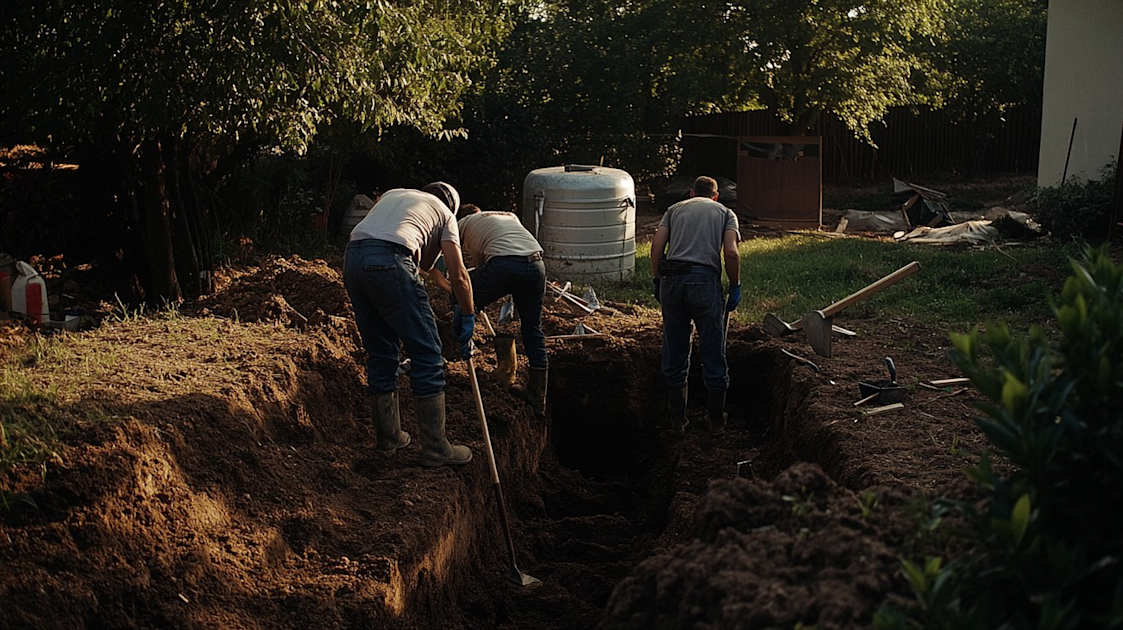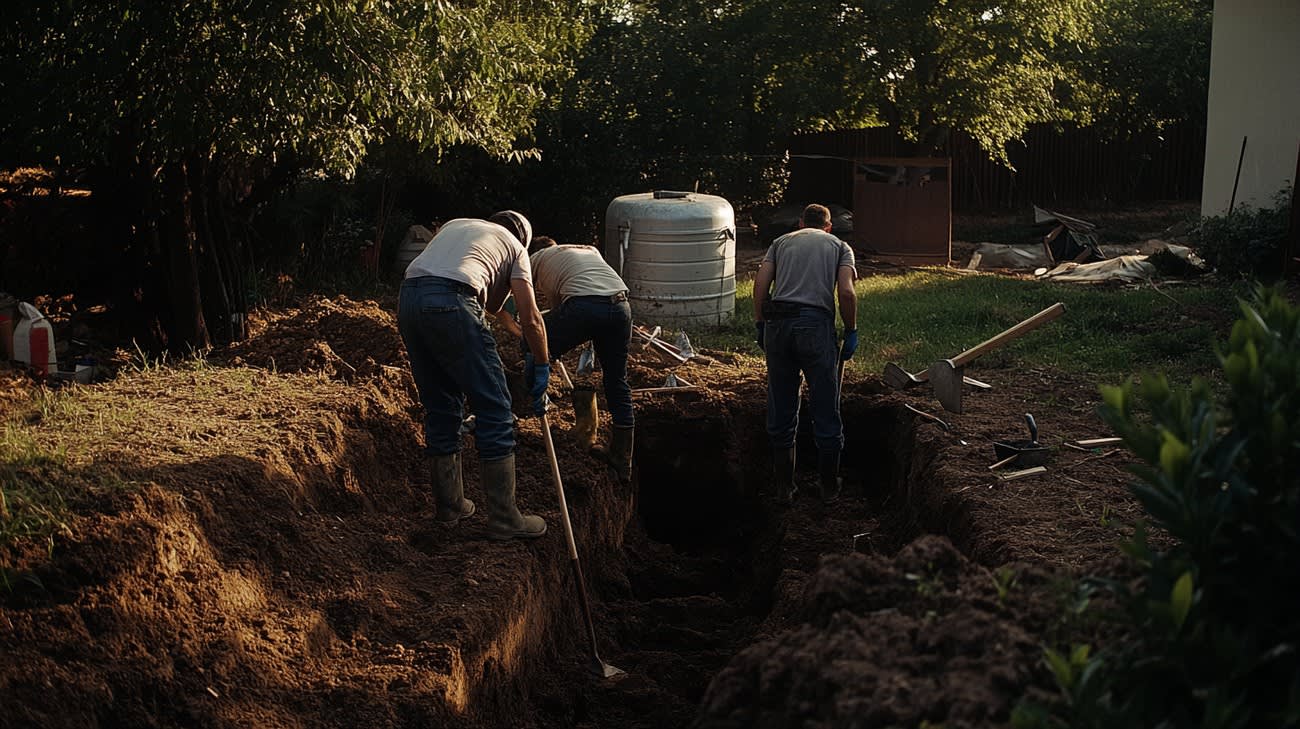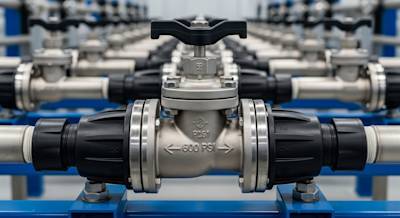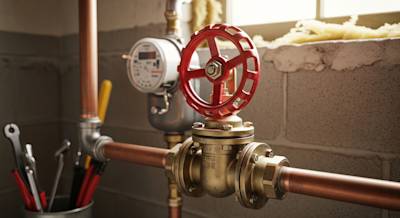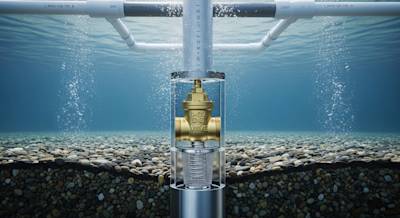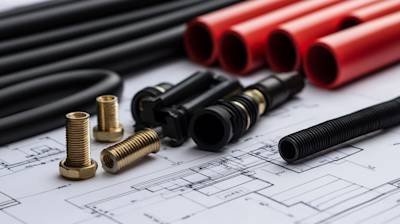Having a faulty septic system can be a daunting issue for any homeowner. It’s not just about the inconvenience; it can also pose risks to your health and the environment. Luckily, fixing septic system problems can be within homeowners' grasp—an effective approach to this issue can save time, money, and the environment. Our comprehensive guide offers valuable insights on identifying the problem, necessary preventative maintenance measures, and fundamental steps towards fixing your septic system. Follow this resourceful, SEO rich guide, and ensure the optimal performance of your septic system.
Understanding your Septic System
A septic system works as a personal sewage treatment and disposal system for your home. When well maintained, it can offer trouble-free service for many years. Here is a quick rundown on how it works:
- Waste Removal: Wastewater is carried from your house to the septic tank.
- Solid Settlement: After reaching the tank, heavy solids settle down, while lighter substances, including fats and oils, float.
- Effluent Exit: The relatively clear water, or effluent, left after the settling process, exits the tank.
- Reentry to Groundwater: The effluent enters the soil in a drain field. It is then naturally filtered and finally returned to the groundwater.
Knowing these steps helps in diagnosing the issue and fixing septic system problems accordingly.
Identifying Septic System Problems
Common septic systems problems can be spotted by observing certain signs. Here are some:
- Slow drains, gurgling pipes, or backups
- Lush green grass around the septic tank area
- Bad smells coming from drains or the sewer
- Pooling water or muddy soil around your tank or field
If you notice any of these signs, it could mean that your septic tank requires immediate attention.
Preventive Measures for Septic Systems Longevity
Prevention is definitely better (and cheaper) than cure in the case of septic systems. Here are some measures you can take:
Regular Pumping and Inspections: A routine septic tank pumping every 3-5 years and professional inspections can prevent accumulation, sludge build-up, and spot potential problems early.
Mind what Goes Down the Drain: Avoid disposing of non-biodegradable items in your septic system. Examples include diapers, wipes, or fats and oils, which can cause clogs.
Conserve Water: Reducing water usage by installing high-efficiency fixtures, repairing leaks, and spreading laundry loads across the week can reduce the load on your septic system.
Steps to Fix Septic Systems Problems
1. Assess the Situation
Firstly, try to understand what's wrong. To do this, you may need to look at the septic tank, observe the drain field, and investigate unusual events like bad odors or pooling wastewater.
2. Inspect and Pump Regularly
Inspecting your septic tank regularly is vital. Pumping is needed every 3-5 years, depending on usage and household size. Septic tank pumping removes scum and sludge, preventing them from clogging the drain field.
3. Repair Damaged Components
Apart from cleaning, sometimes components of the septic system may need repair or replacement. For instance, a broken pipe might need replacing, or a septic tank lid that's deteriorated might require a new one.
4. Enlist Professional Help
While basic septic tank troubleshooting can be done by homeowners, problems like cleaning a clogged drain field or replacing a septic tank should be left to professionals. Make sure to pick a licensed contractor with positive reviews and adequate experience.
Ensuring Good Health and Working of your Septic System
With regular preventive measures and an understanding of how your system operates, maintaining a healthy, properly functioning septic system doesn't have to be a hassle. Recognizing symptoms, timely inspections, and professional help when needed are vital.
Indeed, empowering homeowners with knowledge about their septic system and its maintenance is key to effortlessly fixing potential problems. Staying patient, vigilant, and proactive will help keep your home safe and your septic system running smoothly.
Fixing septic system problems in time contributes to a clean environment and a healthy home. Here’s to a trouble-free septic system for many years to come!
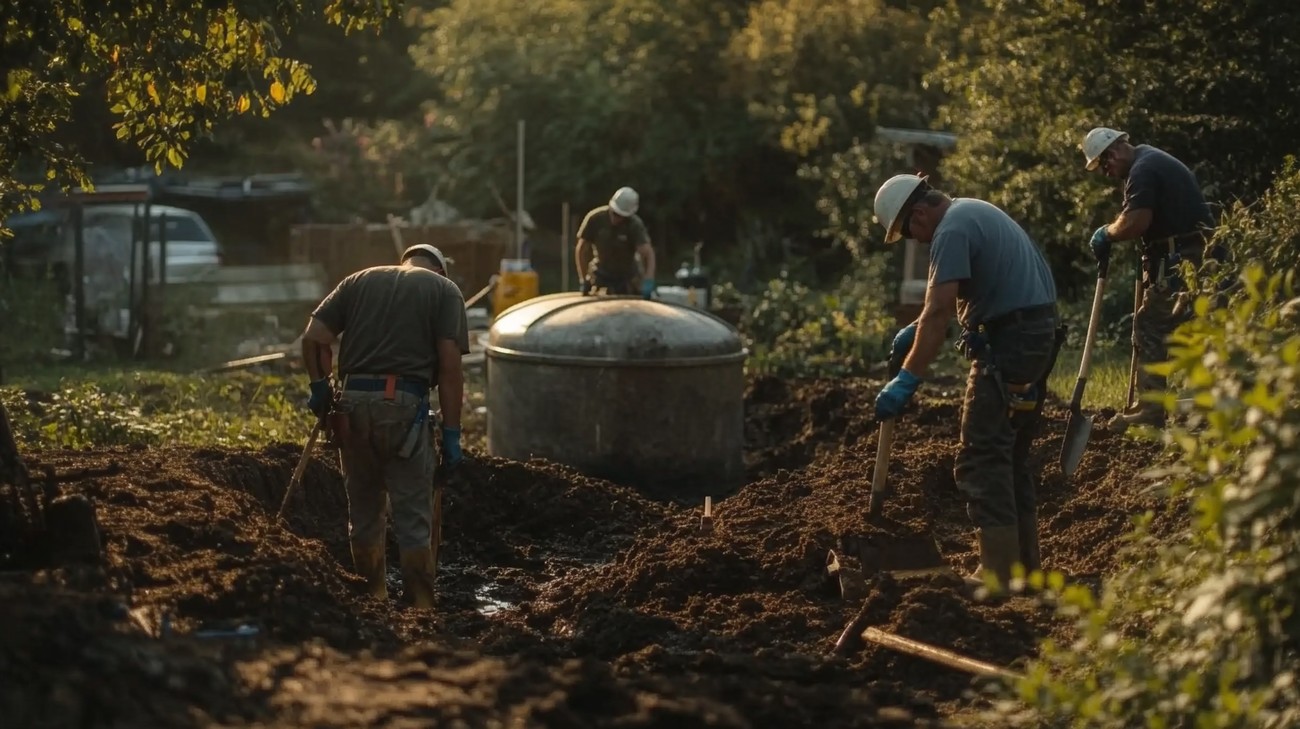
Frequently Asked Questions about Fixing Septic System
Q2: How often should a septic system be inspected or repaired?
On average, a septic system should be professionally inspected at least once every three years. However, some systems with mechanical components like pumps may require annual inspection. As for repairs, it should be done as needed which greatly depends on its usage and the number of people living in the household.
Q3: Can harsh chemicals harm my septic system?
Yes, harsh and corrosive chemicals can indeed damage your septic system. These chemicals can kill the beneficial bacteria in the septic tank that help in breaking down waste. When handling household cleaners, detergents, and other substances, always choose septic-friendly options.
Q4: Is it possible to repair a septic system without professional help?
While it's possible to handle minor septic system issues, like clogged drains on your own, most repair and maintenance tasks require professional help. A septic system represents a significant investment, hence its proper repair and maintenance should be left to the professionals.
Q5: How do septic system professionals fix a failing system?
Septic system professionals employ various techniques to repair a failing system. This could involve pumping out the septic tank to get rid of the sludge and scum, repairing or replacing damaged parts, or even replacing the whole system in severe cases.
Q6: Why is my septic tank full of water?
Septic tanks are designed to be full of water. However, if water is above the outlet pipe, then it may be due to overuse, leaky fixtures, overloading the system with excess water, or drain field failure.
Q7: What causes septic system failure?
A variety of issues can lead to septic system failure. These include lack of routine maintenance, misuse like flushing non-biodegradable items down the toilet, improper installation, tree root intrusion, prolonged use of harsh chemicals, and natural disasters like heavy rainfall and floods.
Q8: What happens if you don't pump your septic tank?
Not pumping your septic tank can lead to a build-up of solid waste material. This can cause clogs and overflows, which might result in severe damage to the septic system and the environment. In some cases, a full septic tank may also lead to sewage backup into your home.
Q9: Can you sell a house with a failing septic system?
Yes, it's possible to sell a house with a failing septic system, but it may affect the selling price. Depending on local laws, the seller might have to disclose the condition of the septic system to potential buyers. The cost of repairing or replacing the septic system can then become a point of negotiation in the sale.

Pros of Fixing Septic System
Enhances the Functionality of the System
Prolongs Lifespan
One of the most obvious benefits of fixing a septic system is the enhancement of its lifespan. Septic systems are designed to last many years, but without prompt and regular repairs, they may break down prematurely. Just like other aspects of property maintenance, tending to repairs as soon as they become necessary is helpful in extending the system's life expectancy.
Prevents System Failure
Fixing septic systems also prevents catastrophic failures which can be very expensive to repair and pose serious health risks. Malfunction of one part of the system can lead to a domino effect, causing major damages to other parts as well. Prompt repairs help stop this from happening.
Efficient Waste Treatment
Regularly fixing your system ensures efficient waste treatment. A fully functional septic system effectively separates solids from liquids, allowing for proper wastewater treatment. This prevents harmful bacteria and pathogens from contaminating your property and surrounding environments.
Economic Considerations
Cost-Effective in the Long Run
You may feel that fixing your septic system is expensive, but considering the alternatives, it is actually cost-effective in the long run. Ignoring a small problem could lead to major repair requirements in the future, which is likely to cost significantly more. Plus, a well-maintained septic system contributes positively to the property value.
Prevents Fines from Regulatory Bodies
Depending on where you live, having a well-maintained septic system may be a legal requirement. Failing to fix malfunctions can lead to fines and penalties from city councils or other regulatory bodies.
Environmental Benefits
Prevents Contamination of Water Sources
A leaking or non-functioning septic system could lead to serious environmental damage, including contamination of groundwater. By fixing your system promptly, you help in maintaining clean underground water resources and protect the environment.
Reduces Soil Contamination
A functioning septic system is designed to filter out harmful substances before they reach the soil. When a system is failing, hazardous materials, bacteria, and pathogens can contaminate the soil, making it unhealthy for people, animals, and plants.
Cons of Fixing Septic System
Financial Implications
High Immediate Costs
While fixing a septic system is financially beneficial in the long run, it does come with high immediate costs, largely dependent on the severity of the problems. Not everyone can afford these costs, especially if the repairs are urgent.
Potential for Extra and Hidden Costs
Sometimes, septic professionals unearth additional problems while fixing the current issues. So, what might begin as a minor repair job can turn into an expensive project. These extra, hidden costs can be stressful and put a strain on your budget.
Time, Effort, and Inconvenience
Disruptions to Daily Activities
Depending on the extent of the repair, fixing a septic system can cause significant disruptions to routine activities. During the repair process, usage of toilets, showers, washing machines, or any appliance that contributes to the wastewater might need to be limited or even stopped.
Time Consuming Process
The process of fixing a septic system can also be time-consuming. From identifying the problem, to finding a reliable professional, to the actual job of repairing, all these aspects can take considerable time.
Finding a Reliable and Trustworthy Technician
Finding a qualified and trustworthy septic system professional can be a challenge. Unfortunately, there are service providers who are neither experienced nor equipped to do the required work or may overcharge for minor repairs.
Possible Damage to Landscaping
In many cases, the septic tank is located underground in your yard, which means heavy machinery may be required to reach it. This could potentially damage the garden or landscaping above it. This would mean additional costs and time to restore the damaged landscape.

Myths/Misconceptions About Fixing Septic Systems
Septic Tanks Don't Need Regular Maintenance
A common misconception about septic systems is that once installed, they don't necessarily require a regular maintenance schedule. This is false. The truth is, all septic systems need regular inspections and potential pumping every three to five years, depending on the household size, the volume of wastewater generated and the volume of solids in wastewater. Ignoring regular maintenance can lead to serious problems such as the overflowing of the septic tank and blockage in the drain field.
Additives Can Replace the Need for Pumping
Another myth related to septic system maintenance is that septic tank additives can eliminate or reduce the need for regular pumping. Some people believe that by adding yeast, bacteria or other additives to their septic system, the solids in the tank will be broken down and there will be no need for regular pumping. However, experts recommend that even with the use of additives, septic tanks should be pumped every three to five years. The use of septic additives should never replace regular septic tank pumping and maintenance.
All Waste Can Go down The Drain
Some homeowners believe that they can flush all types of waste down toilets or drains if they own a septic system. This is one of the most harmful misconceptions. It's crucial to remember that not all waste is septic-friendly. Certain items, such as coffee grounds, disposal diapers, cigarette butts, sanitary napkins, paper towels, fats, and oils, can cause significant problems to septic systems, including clogs and backups. Therefore, it's essential to be mindful of what goes down your drain.
A Healthy Septic System is Odorless
People often believe that if a septic system is functioning correctly, it shouldn't produce any odor. However, it's perfectly normal for a septic system to release some smell when it's opened for pumping or inspection. This doesn't necessarily mean there's a problem. If a strong, persistent odor is noticeable in your yard or home, it may be a sign of a septic system problem, requiring immediate attention.
Septic System Breakdowns are Unavoidable with Age
Just because a septic system is old doesn’t necessarily mean it’s on the brink of failure. It's true that septic systems have a certain lifespan, but this doesn't mean that an old system is destined to fail. Septic systems that are properly maintained can function effectively for a considerably long period, irrespective of their age. Mismanagement and misuse accelerate the malfunctioning of septic systems, not necessarily the system’s age.
The More Bacteria, The Better
Many people believe that adding more bacteria to the septic system will enhance its performance. However, this is not always the case. Septic systems are designed to have a natural bacterial process. The system hosts its own population of bacteria that is adequately balanced to digest organic materials in the wastewater. Introducing more bacteria may disrupt this balance, potentially causing more harm than good.
A Backed-Up System Means the Septic Tank is Full
A common myth is equating a backed-up septic system with a full tank. Back-ups can happen due to various reasons such as clogged pipes, a failed drain field or because heavy rain has saturated the ground where your septic system is installed. It's essential to get a professional to diagnose any problems with your septic system correctly before jumping into conclusions.
Septic Systems Don't Impact Surrounding Environment
Last but not least, many believe that septic systems have no impact on the surrounding environment. This couldn't be more inaccurate. Septic systems can greatly affect local water quality. If poorly maintained, they can fail, causing untreated wastewater to reach the ground surface or local water wells, polluting our water resources. Therefore, maintaining your septic system not only benefits you but also protects your environment.
Summary
Overall, repairing a septic system can be a daunting task. However, with the right knowledge and a little bit of research, homeowners can save significant time and money by managing minor issues themselves. The key to a high-functioning, long-lasting system is regular inspections and proper maintenance. When something seems off, addressing the issue promptly is important. Just remember, while some minor things can be done by homeowners, for major issues or concerns, it is always best to call a professional for fixing the septic system.
We all know septic systems are essential for processing and treating our household wastewater. Despite this, they often become 'out-of-sight, out-of-mind' until there is a problem. In light of this, it is extremely crucial for homeowners to be proactive and take charge of the system's health. When problems occur, getting an expert involved is important to avoid any environmental hazards or long-term damage. So, if you ever find yourself in a fix, don’t hesitate to look into fixing the septic system.
But let's be honest, nobody likes dealing with sewage. Still, having a well-maintained septic system is more than just a convenience - it's a necessity. Whether dealing with a full system failure or just routine maintenance, there’s no way around it. Armed with a bit of knowledge and regular care, fixing septic system problems can be manageable and less intimidating. Keep in mind that while DIY fixes are great for minor issues, call a professional when the problem is beyond your capabilities.
About KYPD Plumbing
KYPD Plumbing is your go-to professional plumbing service in Lexington, KY. Locally owned and operated, we've been serving our neighbors with top-notch plumbing solutions since our establishment. Known for our integrity and proficiency, we consistently provide repair, maintenance, and installation services that leave our clients completely satisfied. If you're looking for a blend of expert plumbing service and neighbourly familiarities, KYPD Plumbing is your call!
Tags: septic tank, septic system repair, plumbing services,

